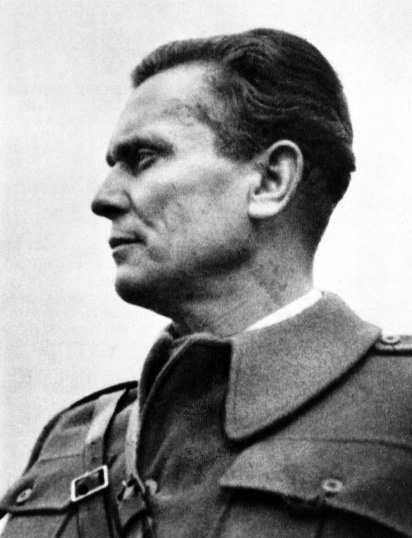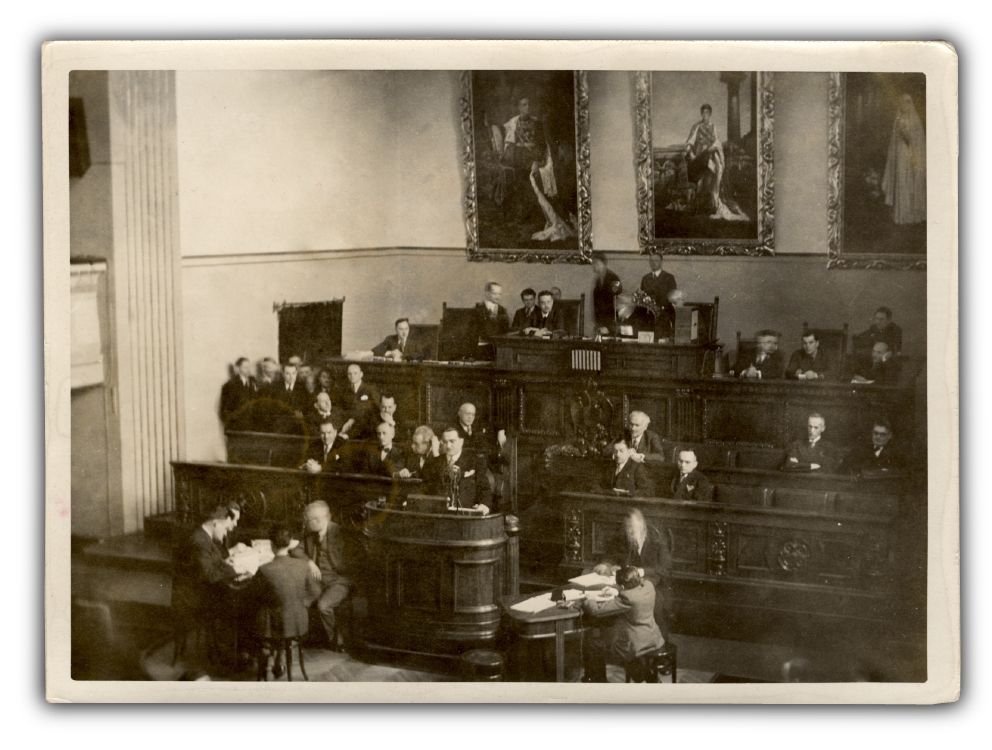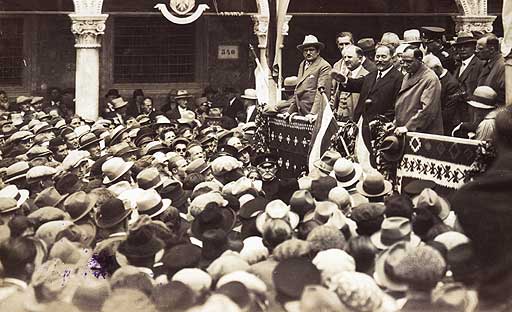|
Yugoslav Muslim Organization
The Yugoslav Muslim Organization (, ''JMO'') was an Ethnic Muslim (today Bosniak) political party in the Kingdom of Serbs, Croats and Slovenes, later in the Kingdom of Yugoslavia. It was founded in Sarajevo on the 16 February 1919 and was led by Mehmed Spaho. The party was a successor of Muslimanska Narodna Organizacija (Muslim National Organization), a conservative Bosniak party founded in 1906 during the Austro-Hungarian era. The Muslim National Organization was itself a successor of the conservative Bosniak "Movement for waqf and educational autonomy" (Pokret za vakufsko-mearifsku autonomiju) that goes back to 1887. In election campaigns the JMO did mobilize on religious slogans rather than Bosniak nationality, calling failure of Muslims to vote for the party as a sin. The party had considerable influence in Islamic religious institutions, and JMO came to dominate the political life in Bosnia and Herzegovina. The party appealed to Muslims throughout Yugoslavia, urging them not ... [...More Info...] [...Related Items...] OR: [Wikipedia] [Google] [Baidu] |
Mehmed Spaho
Mehmed Spaho (13 March 1883 – 29 June 1939) was a Bosnian politician and leader of the Yugoslav Muslim Organization. He was the first Bosnian Muslim politician in the Kingdom of Serbs, Croats and Slovenes. Spaho was described as the "undisputed leader of the Bosniaks between the two world wars" by the newspaper ''Oslobođenje'' in 2013. He died under mysterious circumstances in a Belgrade hotel. Early life Spaho was born in Sarajevo, at the time part of Austria-Hungary, into a coppersmith family. His father Hasan was an expert of the Sharia law, and before the Austrian-Hungarian occupation, he was a judge in the Ottoman cities of Jajce, Sofia, Damascus and Cairo. His mother was Fatima (née Bičakčić). Spaho had three sisters, Behija, Aiša and Habiba, and two brothers, Fehim and Mustafa. Spaho attended elementary school in Sarajevo, where he was a good student. In 1906 graduated from the Faculty of Law at the University of Vienna. At the end of 1907 he passed the doct ... [...More Info...] [...Related Items...] OR: [Wikipedia] [Google] [Baidu] |
Sharia Law
Sharia (; ar, شريعة, sharīʿa ) is a body of religious law that forms a part of the Islamic tradition. It is derived from the religious precepts of Islam and is based on the sacred scriptures of Islam, particularly the Quran and the Hadith. In Arabic, the term ''sharīʿah'' refers to God's immutable divine law and is contrasted with ''fiqh'', which refers to its human scholarly interpretations. In the historical course, fiqh sects have emerged that reflect the preferences of certain societies and state administrations on behalf of people who are interested in the theoretical (method) and practical application ( Ahkam / fatwa) studies of laws and rules, but sharia has never been a valid legal system on its own. It has been used together with " customary (Urf) law" since Omar or the Umayyads. It may also be wrong to think that the Sharia, as a religious argument or belief, is entirely within or related to Allah's commands and prohibitions. Several non-graded cri ... [...More Info...] [...Related Items...] OR: [Wikipedia] [Google] [Baidu] |
Bosniak Political Parties
The Bosniaks ( bs, Bošnjaci, Cyrillic: Бошњаци, ; , ) are a South Slavic ethnic group native to the Southeast European historical region of Bosnia, which is today part of Bosnia and Herzegovina, who share a common Bosnian ancestry, culture, history and language. They primarily live in Bosnia, Serbia, Montenegro, Croatia, Kosovo as well as in Austria, Germany, Turkey and Sweden. They also constitute a significant diaspora with several communities across Europe, the Americas and Oceania. Bosniaks are typically characterized by their historic ties to the Bosnian historical region, adherence to Islam since the 15th and 16th centuries, culture, and the Bosnian language. English speakers frequently refer to Bosniaks as Bosnian MuslimsThis term is considered inaccurate since not all Bosniaks profess Islam or practice the religion. Partly because of this, since the dissolution of Yugoslavia, ''Bosniak'' has replaced ''Muslim'' as an official ethnic term in part to av ... [...More Info...] [...Related Items...] OR: [Wikipedia] [Google] [Baidu] |
Anti-Fascist Council For The National Liberation Of Yugoslavia
The Anti-Fascist Council for the National Liberation of Yugoslavia,, mk, Антифашистичко собрание за народно ослободување на Југославија commonly abbreviated as the AVNOJ, was a deliberative and legislative body that was established in Bihać, Yugoslavia, in November 1942. It was established by Josip Broz Tito, the leader of the Yugoslav Partisans, an armed resistance movement led by the Communist Party of Yugoslavia to resist the Axis occupation of the country during World War II. The AVNOJ reconvened in Jajce in 1943 and in Belgrade in 1945, shortly after the war in Europe ended. Between the sessions, it operated through its presidency, its executive council, and the National Committee for the Liberation of Yugoslavia. The committee was granted authority normally wielded by cabinets. While Tito presided over the committee, the AVNOJ sessions and its presidency were chaired by Ivan Ribar. The second session of the ... [...More Info...] [...Related Items...] OR: [Wikipedia] [Google] [Baidu] |
Yugoslav Partisans
The Yugoslav Partisans,Serbo-Croatian, Macedonian language, Macedonian, Slovene language, Slovene: , or the National Liberation Army, sh-Latn-Cyrl, Narodnooslobodilačka vojska (NOV), Народноослободилачка војска (НОВ); mk, Народноослободителна војска (НОВ); sl, Narodnoosvobodilna vojska (NOV) officially the National Liberation Army and Partisan Detachments of Yugoslavia, sh-Latn-Cyrl, Narodnooslobodilačka vojska i partizanski odredi Jugoslavije (NOV i POJ), Народноослободилачка војска и партизански одреди Југославије (НОВ и ПОЈ); mk, Народноослободителна војска и партизански одреди на Југославија (НОВ и ПОЈ); sl, Narodnoosvobodilna vojska in partizanski odredi Jugoslavije (NOV in POJ) was the Communist Party of Yugoslavia, communist-led Anti-fascism, anti-fascist resistance to the Axis powers ( ... [...More Info...] [...Related Items...] OR: [Wikipedia] [Google] [Baidu] |
Independent State Of Croatia
The Independent State of Croatia ( sh, Nezavisna Država Hrvatska, NDH; german: Unabhängiger Staat Kroatien; it, Stato indipendente di Croazia) was a World War II-era puppet state of Nazi Germany and Fascist Italy. It was established in parts of occupied Yugoslavia on 10 April 1941, after the invasion by the Axis powers. Its territory consisted of most of modern-day Croatia and Bosnia and Herzegovina, as well as some parts of modern-day Serbia and Slovenia, but also excluded many Croat-populated areas in Dalmatia (until late 1943), Istria, and Međimurje regions (which today are part of Croatia). During its entire existence, the NDH was governed as a one-party state by the fascist Ustaša organization. The Ustaše was led by the '' Poglavnik'', Ante Pavelić."'' Poglavnik''" was a term coined by the Ustaše, and it was originally used as the title for the leader of the movement. In 1941 it was institutionalized in the NDH as the title of first the Prime Minister ( ... [...More Info...] [...Related Items...] OR: [Wikipedia] [Google] [Baidu] |
Ante Pavelić
Ante Pavelić (; 14 July 1889 – 28 December 1959) was a Croatian politician who founded and headed the fascist ultranationalist organization known as the Ustaše in 1929 and served as dictator of the Independent State of Croatia ( hr, links=no, Nezavisna Država Hrvatska, NDH), a fascist puppet state built out of parts of occupied Yugoslavia by the authorities of Nazi Germany and Fascist Italy, from 1941 to 1945. Pavelić and the Ustaše persecuted many racial minorities and political opponents in the NDH during the war, including Serbs, Jews, Romani, and anti-fascists, becoming one of the key figures of the genocide of Serbs, the Porajmos and the Holocaust in the NDH. At the start of his career, Pavelić was a lawyer and a politician of the Croatian Party of Rights in the Kingdom of Yugoslavia known for his nationalist beliefs and support for an independent Croatia. By the end of the 1920s, his political activity became more radical as he called on Croats to revol ... [...More Info...] [...Related Items...] OR: [Wikipedia] [Google] [Baidu] |
Invasion Of Yugoslavia
The invasion of Yugoslavia, also known as the April War or Operation 25, or ''Projekt 25'' was a German-led attack on the Kingdom of Yugoslavia by the Axis powers which began on 6 April 1941 during World War II. The order for the invasion was put forward in " Führer Directive No. 25", which Adolf Hitler issued on 27 March 1941, following a Yugoslav coup d'état that overthrew the pro-Axis government. The invasion commenced with an overwhelming air attack on Belgrade and facilities of the Royal Yugoslav Air Force (VVKJ) by the Luftwaffe (German Air Force) and attacks by German land forces from southwestern Bulgaria. These attacks were followed by German thrusts from Romania, Hungary and the Ostmark (modern-day Austria, then part of Germany). Italian forces were limited to air and artillery attacks until 11 April, when the Italian army attacked towards Ljubljana (in modern-day Slovenia) and through Istria and Lika and down the Dalmatian coast. On the same day, Hungarian for ... [...More Info...] [...Related Items...] OR: [Wikipedia] [Google] [Baidu] |
Banovina Of Croatia
The Banovina of Croatia or Banate of Croatia ( sh-Latn-Cyrl, separator=" / ", Banovina Hrvatska, Бановина Хрватска) was an autonomous province ( banovina) of the Kingdom of Yugoslavia between 1939 and 1941. It was formed by a merger of Sava and Littoral banovinas into a single autonomous entity, with small parts of the Drina, Zeta, and Danube banovinas also included. Its capital was Zagreb and it included most of present-day Croatia along with portions of Bosnia and Herzegovina and Serbia. Its sole Ban during this period was Ivan Šubašić. Background In the Vidovdan Constitution of 1921, the Kingdom of Serbs, Croats and Slovenes had established 33 administrative districts, each headed by a government-appointed prefect. Both the Vidovdan Constitution in general and the administrative districts in particular were part of the design of Nikola Pašić and Svetozar Pribićević to maximize the power of the ethnic Serb population within the new state. The new constit ... [...More Info...] [...Related Items...] OR: [Wikipedia] [Google] [Baidu] |
Milan Stojadinović
Milan Stojadinović ( sr-Cyrl, Милан Стојадиновић; 4 August 1888 – 26 October 1961) was a Serbian and Yugoslav politician and economist who served as the Prime Minister of Yugoslavia from 1935 to 1939. He also served as Foreign Minister from 1935 to 1939 and as Minister of Finance three times (1922–1924, 1924–1926, 1934–1935). Early life Milan Stojadinović was born on 4 August 1888 in the Serbian town of Čačak. His father, Mihailo, was a municipal judge who relocated to Belgrade in 1904. It was here that the young Stojadinović finished his secondary education and became a sympathizer of the Serbian Social Democratic Party (SSDP). Later, he came to believe that the liberation of ethnic Serbs who lived in the Austro-Hungarian and Ottoman empires was more important than bridging the gap between the upper and lower classes, and followed in his father's footsteps by joining the People's Radical Party (NRS) of Nikola Pašić. In the summer of 1906, St ... [...More Info...] [...Related Items...] OR: [Wikipedia] [Google] [Baidu] |
Alexander I Karađorđević
Alexander I ( sr-Cyrl, Александар I Карађорђевић, Aleksandar I Karađorđević, ) ( – 9 October 1934), also known as Alexander the Unifier, was the prince regent of the Kingdom of Serbia from 1914 and later the King of Yugoslavia from 1921 to 1934 (prior to 1929 the state was known as the Kingdom of Serbs, Croats and Slovenes). He was assassinated by the Bulgarian Vlado Chernozemski of the Internal Macedonian Revolutionary Organization, during a 1934 state visit to France. Having sat on the throne for 13 years, he is the longest-reigning monarch of the Kingdom of Yugoslavia. Early life Alexander Karađorđević was born on 16 December 1888 in the Principality of Montenegro as the fourth child (second son) of Peter Karađorđević (son of Prince Alexander of Serbia who thirty years earlier in 1858 was forced to abdicate and surrender power in Serbia to the rival House of Obrenović) and Princess Zorka of Montenegro (eldest daughter of Prince Nicholas o ... [...More Info...] [...Related Items...] OR: [Wikipedia] [Google] [Baidu] |
Croatian Republican Peasant Party
The Croatian Peasant Party ( hr, Hrvatska seljačka stranka, HSS) is an agrarian political party in Croatia founded on 22 December 1904 by Antun and Stjepan Radić as Croatian Peoples' Peasant Party (HPSS). The Brothers Radić believed that the realization of Croatian statehood was possible within Austria-Hungary, but that it had to be reformed as a Monarchy divided into three equal parts – Austria, Hungary, Croatia. After the creation of Kingdom of Yugoslavia in 1918, Party requested for the Croatian part of the Kingdom to be based on self-determination. This brought them great public support which culminated in 1920 parliamentary election when HPSS won all 58 seats assigned to Croatia. In 1920, disgruntled with a bad position of Croats in the Kingdom, the party changed its name into Croatian Republican Peasant Party (HRSS) and started advocating secession from the Kingdom and the establishment of ''"peaceful peasant Republic of Croatia"''. On 1923 and 1925 election, HRSS ... [...More Info...] [...Related Items...] OR: [Wikipedia] [Google] [Baidu] |






